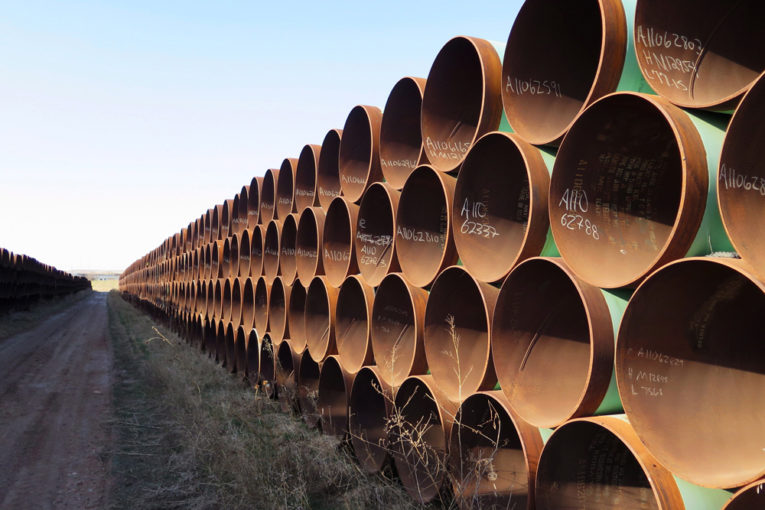
CALGARY – Lawyers opposed to TransCanada Corp.’s controversial Keystone XL pipeline expect “a race to the courthouse” in Nebraska to appeal the state’s recent approval of an alternative route for the pipeline.
On Tuesday, the Nebraska Public Service Commission voted 5-0, denying a TransCanada motion to retroactively amend its pipeline application through the state, a setback for the Calgary-based company.
The commission had approved the pipeline in late November, clearing the way that has suffered delays for years. However, the regulator signed off an alternative route for Keystone XL – rather than TransCanada’s preferred route – which has been questioned by opponents as a violation of Nebraska statutes.
The denial raises the potential for appeals from both TransCanada looking to overturn the decision, and from environmental groups to prevent its construction.
“Their application is for one route. They did not get it approved,” said David Domina, a lawyer representing a group of approximately 90 landowners opposed to the pipeline.
“The alternative routes are there for comparative purposes but were not applied for, were never studied except by TransCanada and when the Public Service Commission’s 3-2 majority (last month) – perhaps influenced by political pressures and misunderstandings – they put TransCanada in a position worse for the company than if they had flat out refused,” he said.
As a result, Domina said he expects both sides will appeal the decision during the appeal window that’s open for 30 days.
“Whoever files first gets the first brief, so that would be the positioning concern of good appellate lawyers – do I want to be the appellant or do I want to be the appellee?” Domina said, adding, “So there’s always a small element of the race to the courthouse for that.”
Asked whether or not TransCanada planned to appeal the Nebraska commission’s decision, company spokesperson Terry Cunha said, “We are still reviewing today’s decision to determine next steps.”
“More importantly, Keystone XL remains a viable project with strong commercial support,” Cunha said in an email adding that both Canadian and American governments support the pipeline, including an executive order from U.S. President Donald Trump.
“We remain committed to the Keystone XL project,” he said. TransCanada has yet to officially sanction the construction of the $8-billion project.
Throughout commission’s hearings on Keystone XL during the summer, TransCanada executives had said the alternate route was viable but not preferred while being cross examined by lawyers for opposed landowners, environmental groups and Native American tribes.
The alternative route follows the preferred route through the northern part of Nebraska but then jags eastward from the preferred route to run alongside TransCanada’s existing Keystone pipeline system through Nebraska.
The difference between the preferred and alternate route is about five miles and had been described by pro-pipeline industry groups as a minor inconvenience to the project, which would carry 830,000 barrels of oil per day from Alberta to refineries in the U.S. Gulf Coast.
The Nebraska Public Service Commission’s decision to approve the alternative route rather than TransCanada’s preferred route has resulted in confusion on both sides of the debate as to how soon the company could begin construction if it chooses to sanction the project, and could result in further delays for a pipeline that has now spent nine years in U.S. regulatory processes.
Financial Post
gmorgan@nationalpost.com
You can read more of the news on source
